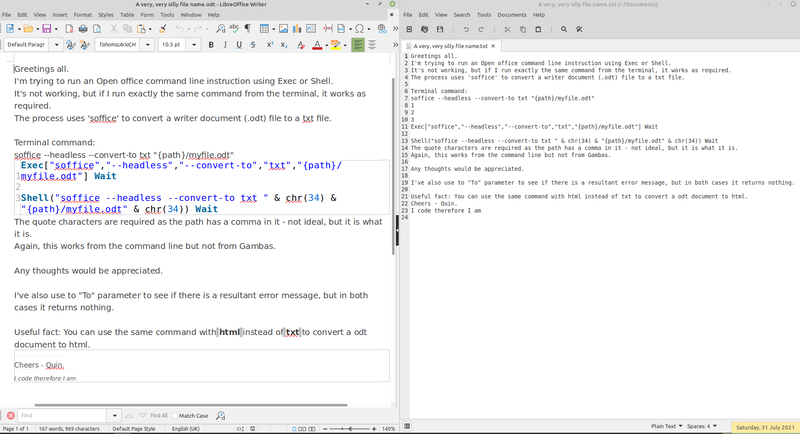I'm trying to run an Open office command line instruction using Exec or Shell.
It's not working, but if I run exactly the same command from the terminal, it works as required.
The process uses 'soffice' to convert a writer document (.odt) file to a txt file.
Terminal command:
soffice --headless --convert-to txt "{path}/myfile.odt"
Exec["soffice","--headless","--convert-to","txt","{path}/myfile.odt"] Wait
Shell("soffice --headless --convert-to txt " & chr(34) & "{path}/myfile.odt" & chr(34)) Wait
Again, this works from the command line but not from Gambas.
Any thoughts would be appreciated.
I've also use to "To" parameter to see if there is a resultant error message, but in both cases it returns nothing.
Useful fact: You can use the same command with html instead of txt to convert a odt document to html.

